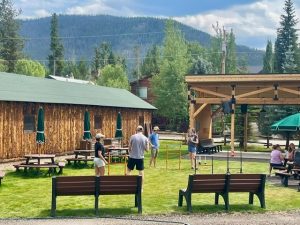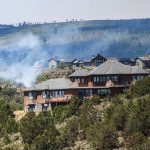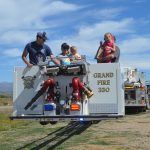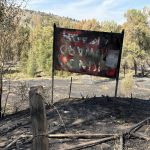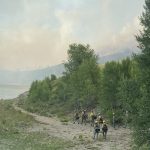Senate Republicans pursue new version of public land sales as Colorado lawmakers push back
The latest proposal from Republicans in the Senate Energy and Natural Resources Committee excludes U.S. Forest Service land and reduces the requirement for Bureau of Land Management land
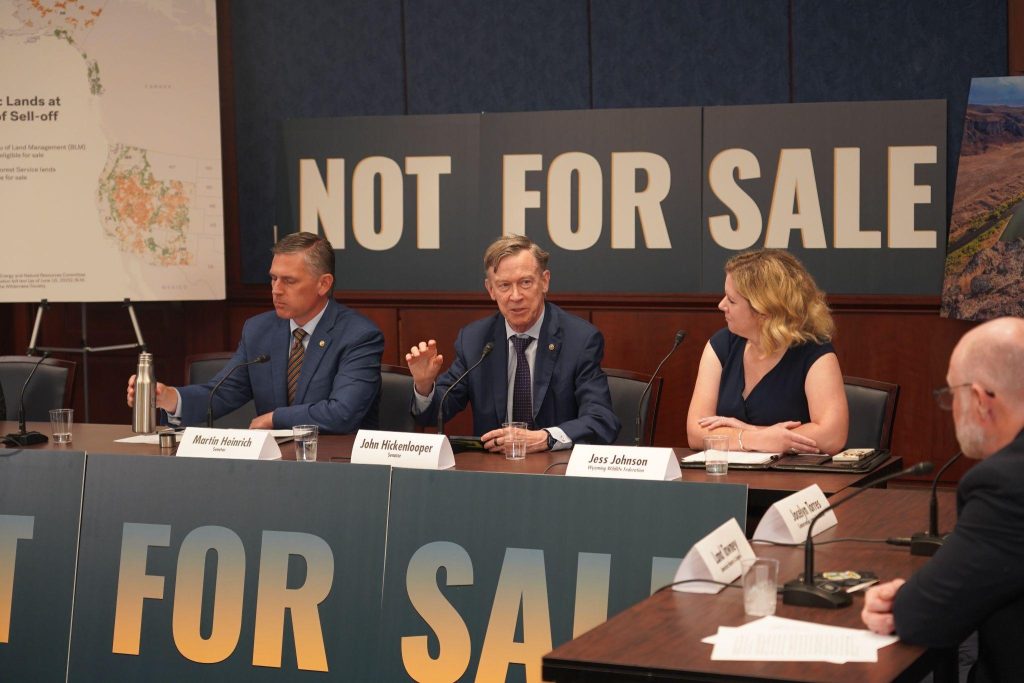
Courtesy photo
After hitting a roadblock this week with the Senate parliamentarian, Republicans in the Energy and Natural Resources Committee have a new proposal for federal land sales, which could require the sale of up to 1.2 million acres.
The latest version of the text would require the disposal of between 0.25% and 0.5% of Bureau of Land Management land in 11 Western states, including Colorado, where it manages 8.3 million acres. Only land located “within 5 miles of the border of a population center” could be sold under the new text.
The Bureau manages around 245 million acres of public land across the United States. The vast majority of this — all but 40,000 acres — is located in 12 Western states. The bill proposal includes all these Western states except Montana and would designate between approximately 612,000 to 1.2 million acres of Bureau land for sale across the eligible states.
The new text axes U.S. Forest Service land from the required sales but maintains the same exemptions for protective federal designations like national monuments, national parks and more. It clarifies that land with existing grazing permits or leases and “valid existing rights” that are incompatible with housing development or associated infrastructure for housing would be exempt from the sales.
These changes fall in line with those posted on X Monday night by Utah Republican Sen. Mike Lee, who chairs the Senate committee and has been championing its reconciliation text.
“We’re just getting started,” Lee wrote on the social media platform.
The committee’s original proposal — which would have mandated the sale of between 2 million and 3 million acres of Forest Service and Bureau land in the West — was struck down this week by the Senate parliamentarian. The provision, and several others in the committee’s bill text, were found to violate the Byrd Rule, which requires all items in a reconciliation package to have a direct and substantive impact on federal spending or revenues.
The latest version of the text still requires that the parcels be used for housing or “to address any infrastructure and amenities to support local needs associated with housing.” Any interested party would still be able to nominate parcels for sale. Proceeds from the sales would go to the U.S. Treasury, with percentages allocated to local jurisdictions (5%) as well as to hunting, fishing, recreation and deferred maintenance on Bureau land in the state where the sale occurs (10%).
While Montana is excluded from the provision’s land sales, Montana Republican Sen. Ryan Zink posted on X Thursday afternoon that he remains a “no on the Senate reconciliation bill.”
“I agree with my colleagues that the federal government has mismanaged federal lands for decades. But I don’t agree with their solution.” Zinke wrote. “The solution is not to sell public lands. The solution is better management.”
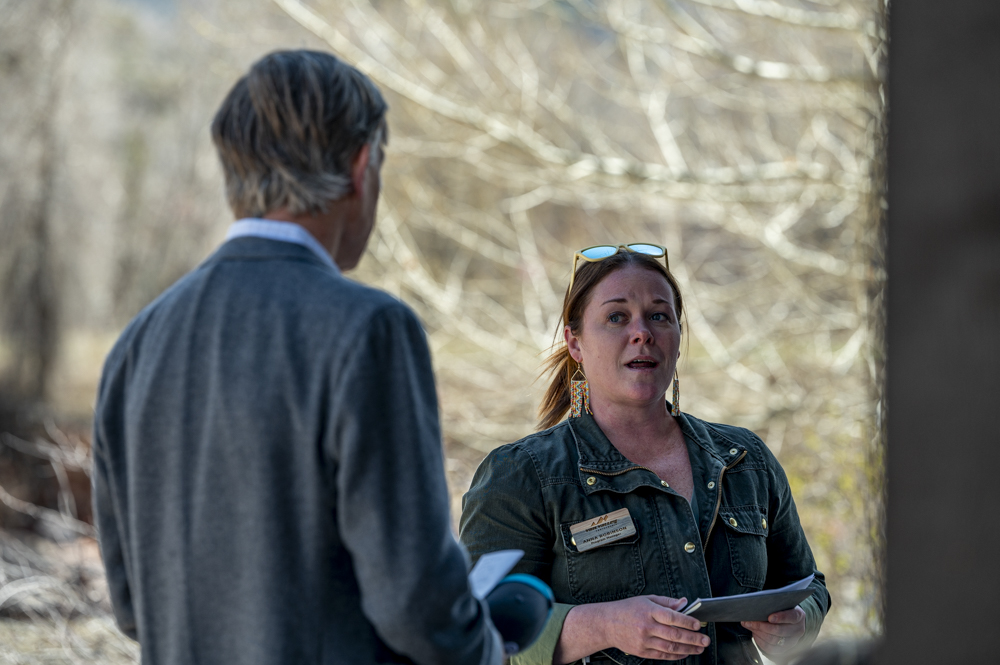
Colorado lawmakers continue to push back against public land sales
Despite the latest changes, Colorado lawmakers on both sides of the aisle have continued to oppose any federally mandated public land sales.
“To sell these prized public lands and put the money totally to provide a tax benefit largely for a narrow, a smaller number of people, kind of goes against the tradition of public lands, the long and storied history of public lands,” said Colorado Democratic Sen. John Hickenlooper in a Wednesday roundtable on the sales hosted by the Senate Committee Democrats.
Hickenlooper added that in Colorado, public lands are critical to the state’s $17 billion outdoor recreation industry, watershed health, wildfire management, quality of life and mental health.
In a statement, he vowed to “keep fighting against their last-ditch efforts to sneak their provision back into their big ugly bill.”
Colorado Reps. Joe Neguse, a Democrat representing District 2, and Jeff Hurd, a Republican representing District 3, issued a joint statement to the press on Tuesday, also vowing to fight for public land sales to stay out of the reconciliation bill.
The representatives both voted and rallied against land sales included in the House portion of the bill — Hurd being the only Republican in the House Natural Resources committee to do so. Ultimately, the House proposal — which would have mandated the sale of around half a million acres in Utah and Nevada — was stripped from the reconciliation bill’s final version.
At the state level, a group of bipartisan Western Slope lawmakers sent a letter to federal lawmakers reiterating their opposition to any sales, calling them “unpopular and misguided.” The letter was signed by Reps. Julie McCluskie, a Dillon Democrat, and Rick Taggart, a Grand Junction Republican, as well as Sens. Dylan Roberts, a Frisco Democrat, and Marc Catlin, a Montrose Republican.
The lawmakers wrote that despite the parliamentarian’s ruling against the land sale proposal in the budget, “Senator Lee has already committed to reintroducing new language, demonstrating a determination to push through this deeply unpopular agenda.”
“This lack of transparency and repeated attempts to bypass public input are unacceptable,” the letter adds.
This same group of four Colorado lawmakers introduced a resolution this legislative session opposing any national legislative effort to sell or dispose of Colorado’s public lands. It passed nearly unanimously in both chambers.
“Countless Coloradans have stood up in recent weeks to oppose public lands sell-off, and more voices are joining the opposition to this deeply misguided effort every day,” wrote the lawmakers in their June letter. “The local voices are strong and clear; Coloradans do not support public land sell-off.”

Support Local Journalism

Support Local Journalism
The Sky-Hi News strives to deliver powerful stories that spark emotion and focus on the place we live.
Over the past year, contributions from readers like you helped to fund some of our most important reporting, including coverage of the East Troublesome Fire.
If you value local journalism, consider making a contribution to our newsroom in support of the work we do.

